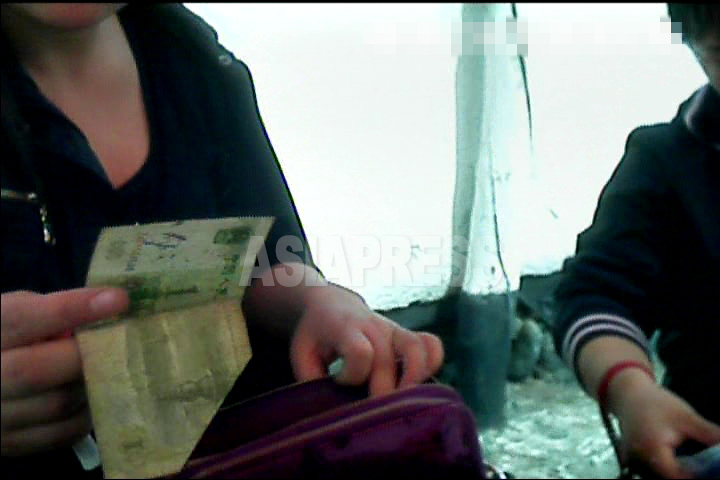
North Korea’s RMB-KRW exchange rate in North Korea is spiking.
ASIAPRESS reporting partners in North Hamgyung and Yanggang provinces reported on November 28 that 1 RMB equaled 1,100 North Korean won. That’s a 36% increase compared to just three weeks ago. Given that 1 RMB equaled 635 KRW in the early months of this year, the exchange rate has spiked more than 75% in 11 months.
The North Korean government manages currency exchange rates; however, illegal money changers in cities throughout the country conduct under-the-table transactions using exchange rates they set based on supply and demand. Trading companies and private businesspeople have long used illegal money changers.
Then, why is the value of the Chinese yuan increasing so much now? North Korean trade with China is trending upward following the end of the COVID-19 outbreak in the country. Has that perhaps led to a rise in demand for Chinese yuan?
ASIAPRESS reporting partners agreed, however, that a “fall in supply” is a bigger reason for the RMB’s increasing value than an “increase in demand.”
“There’s no foreign currency now. Nothing left,” a reporting partner in North Hamgyung Province said before explaining that “I’ve asked several money changers, who have told me that both trading companies and members of the donju (the wealthy entrepreneurial class) no longer have any foreign currency. Foreign currency enters the country by exporting seafood products, coal, and clothing to China, but no exports are occurring. Meanwhile, they say that everyone is experiencing a shortage of foreign currency because the country’s Chinese yuan has all flowed into Pyongyang, Sinuiju and Nampo, areas that need the foreign currency for exports.”
A reporting partner in Yanggang Province concurred with this analysis, saying, “There are money changers operating in Pyongyang who focus exclusively on bringing Chinese yuan and American dollars into the country. Now there’s almost no foreign currency left in Yanggang Province, from what I hear.”
The USD-KPW exchange rate, meanwhile, has increased by only 2.5% compared to three weeks ago. One of the reporting partners told ASIAPRESS that, “(The Chinese yuan) has long been manipulated by the government to artificially lower its value. Now there’s no Chinese yuan left circulating, so now the market is seeing the actual value of Chinese yuan (without government manipulation).” (KANG Ji-won )
※ ASIAPRESS smuggles Chinese cell phones into North Korea to communicate with its reporting partners.
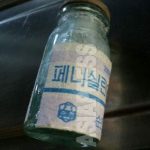
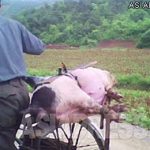
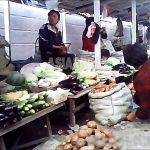

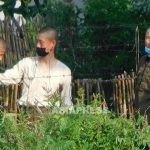
![[Video Report] Chinese products and currency are playing a vital role in N.Korean market](https://www.asiapress.org/rimjin-gang/wp-content/uploads/2017/01/6566-150x150.jpg)



















